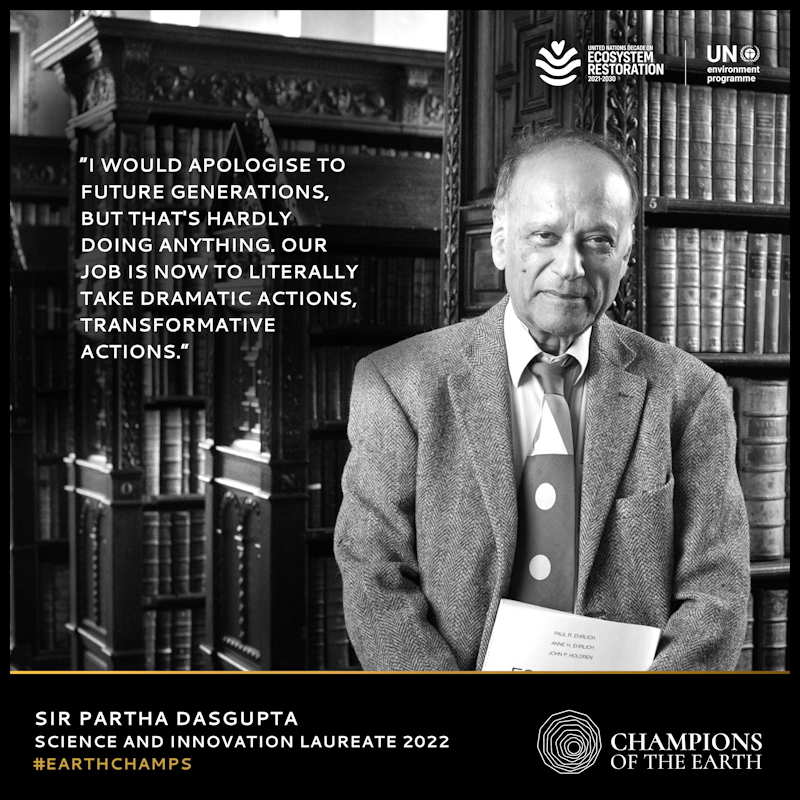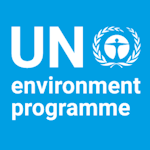UN Environment Programme
Since its inception in 2005, the annual Champions of the Earth award has been awarded to trailblazers at the forefront of efforts to protect our natural world. It is the UN’s highest environmental honour. To date, the award has recognized 111 laureates: 26 world leaders, 69 individuals and 16 organizations. This year a record 2,200 nominations from around the world were received.
The When the United Kingdom Treasury approached the Faculty’s Sir Partha Dasgupta in 2019 to carry out a review of the economics of biodiversity, the first time a finance ministry is believed to have commissioned such a study, the eminent Cambridge University economist did not think twice about saying “yes”.
Over the next 18 months or so, Dasgupta and his team combined scientific, economic and historical evidence with rigorous mathematical modelling to produce The Economics of Biodiversity: The Dasgupta Review.
Published in February 2021, the landmark report shows that economic growth has come at a devastating cost to nature. It makes clear that humanity is destroying its most precious asset — the natural world — by living beyond the planet’s means and highlights recent estimates that 1.6 Earths would be required to maintain current living standards.
“Economic forecasts consist of investment in factories, employment rates, [gross domestic product] growth. They never mention what's happening to the ecosystems,” said Dasgupta, who is this year’s United Nations Environment Programme (UNEP) Champion of the Earth laureate for Science and Innovation. “It really is urgent that we think about it now,” he said.

The report was the culmination of four decades of work in which Dasgupta has sought to push the boundaries of traditional economics and lay bare the connection between the health of the planet and the stability of economies.
The Economics of Biodiversity is the foundation of a growing field of what is known as natural capital accounting, in which researchers attempt to assess the value of nature. Those numbers can help governments better understand the long-term economic costs of logging, mining and other potentially destructive industries, ultimately bolstering the case for protecting the natural world.
Further details: https://www.unep.org/championsofearth/laureates/2022/sir-partha-dasgupta







